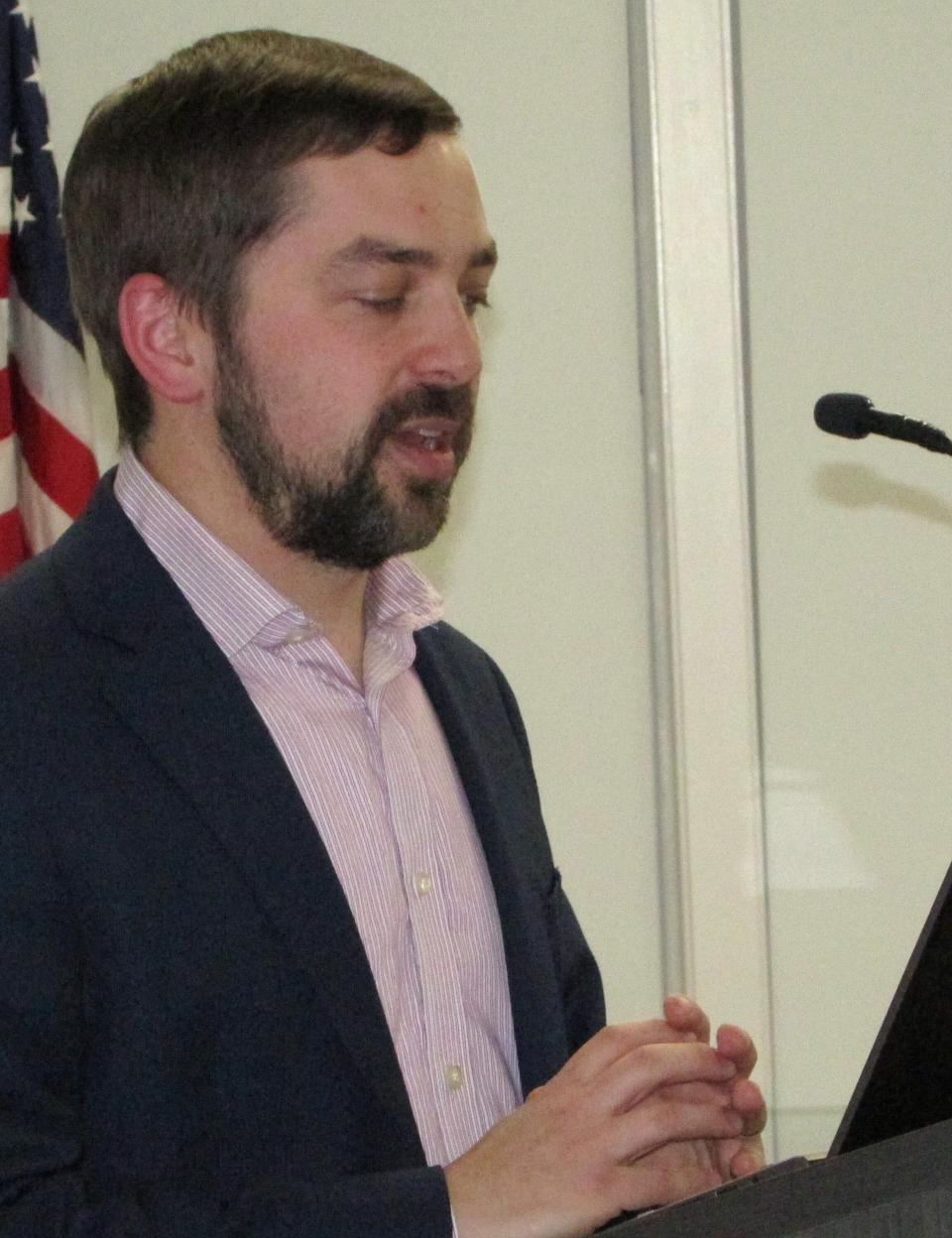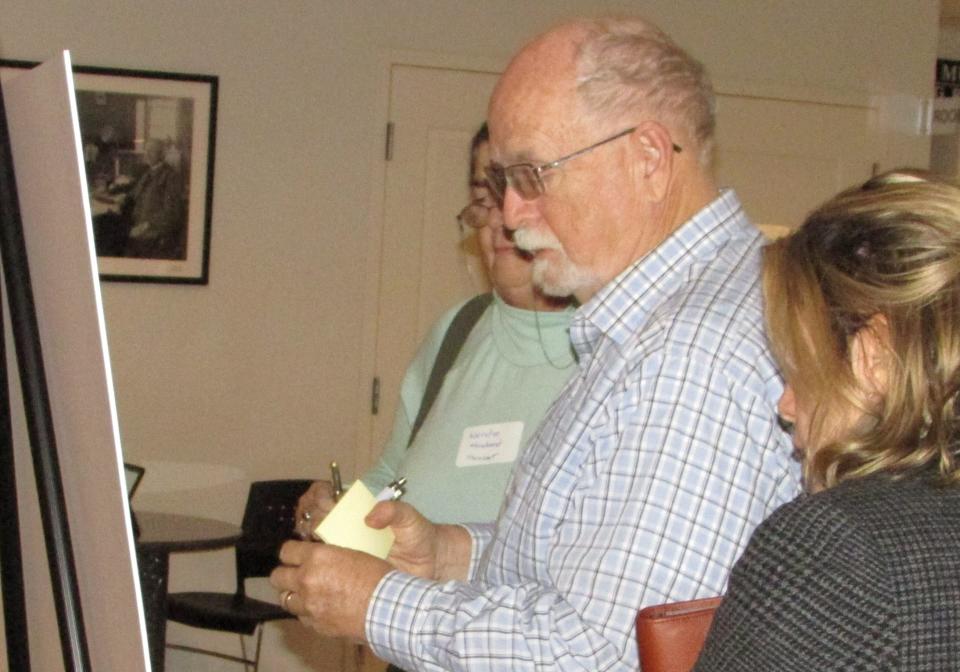'Big gaps, service slowdowns and dropouts.' Bourne is trying to fix its spotty internet.
Bourne is joining forces with the Cape Cod Commission to develop a digital equity plan to ensure the whole town has full and unfettered access to the internet.
Internet service falls short for Bourne residents and businesses in somewhat geographically isolated areas. Poor or non-existent service disrupts student lessons at home, hampers efforts to work remotely, weakens cell phone service and access to online health care.
Buzzards Bay is one neighborhood that is triply served through Comcast, Verizon and now Open Cape, said Robert Dwyer, a Pocasset resident who chairs the Cable, Internet and Telecommunications Advisory Committee.
“For the rest of Bourne there are big gaps, service slowdowns and dropouts,” he said in a Nov. 10 email, speaking as an individual and not for the full board. “Especially in summer.”

Dwyer said Monument Beach, Pocasset and Cataumet are 25% to 40% underserved, according to Cape Cod Commission data. Maps produced by the Federal Communications Commission, the Mass Broadband Institute and Comcast miss or ignore these, he said.
“There also are apparently lots of small pockets with poor or no service that have been missed so far, notably the Pocasset Mobile Home Park,” Dwyer notes. “There’s also an overlap with Environmental Justice-identified areas in town.”
According DataCapeCod.org, a project of the commission, a neighborhood is defined as an Environmental Justice population if one or more of the following four criteria exist: the annual median household income is not more than 65% of the statewide annual median household income; minorities comprise 40% or more of the population; 25% or more of households lack English language proficiency, or minorities comprise 25% or more of the population and the annual median household income of the municipality in which the neighborhood is located does not exceed 150% of the statewide annual median household income.
The plan to bridge the digital divide would seek to make progress on the communication and information fronts. The collective sentiment is that this is a necessity, not a luxury.
Digital equity workshop held in Buzzards Bay
The planning agency conducted a Nov. 13 public workshop headed up by Commission Deputy Director Steven Tupper at the Main Street Community Center. Assistant Town Administrator Elizabeth Hartsgrove guided comments filled with complaints, frustration and some optimism.
The session included discussions about internet goals, vision and barriers as well as the need to incorporate broadband delivery for all into the town’s mission statement.
Council on Aging Director Debora Olivere said “the language of computers often confuses older adults” and that a segment of her department’s constituents “want paper” instead of high-technology messaging updates about activities, services and programs.

At the workshop, Dwyer said many older people are somewhat isolated these days, staying at home, watching television and talking on the telephone; and only possibly trying to communicate via the internet.
Workshop participants said it is becoming increasingly evident that the community “needs a baseline of what everyone knows about digital life, saying this could likely be achieved via “simple updates in plain English” on a weekly or monthly basis.
The idea, Dwyer said, is to “establish a level of education to become a digital-wise community.”
Canal Region Chamber of Commerce President Marie Oliva said members who work as engineers often complain about internet difficulties; particularly reliability and speed and problems inherent with working at home.
Tupper said Bourne faces “differing challenges among different portions of town” and that digital service falls short in certain areas, including housing at Joint Base Cape Cod.
He said based on median age data, Bourne remains the youngest town on the Cape, adding that digital awareness and connectivity obstacles must be eliminated for young and old alike.

The advisory panel has told the Select Board by letter that the Mass. Broadband Institute soon will release draft regulations about how towns must conduct internet speed tests “as part of the determination of whether some residents are ‘served,’ ‘under-served’ or ‘unserved; the basis for their determining allocations for federal funding to remedy service deficits.”
It falls to the Select Board to review and comment on draft rules, which must be submitted to the Institute within a month, according to the advisory committee.
Area towns are also preparing digital equity plans
Sandwich and Wareham are also preparing plans. Tupper said the commission will conduct a similar digital equity workshop in December in Sandwich. He said South Sandwich is the focus of equity planning.
The Institute opened a public comment period on Nov. 14 to gather feedback about the state’s Internet for All Plan. To tap into over $145 million in funds toward broadband and digital equity allocated to the state through the Bipartisan Infrastructure Law, the Institute is gathering comment from residents, municipalities and organizational stakeholders, both online and via mail.
Thanks to our subscribers, who help make this coverage possible. If you are not a subscriber, please consider supporting quality local journalism with a Cape Cod Times subscription. Here are our subscription plans.
This article originally appeared on Cape Cod Times: Mobile home park, base housing in Bourne part of digital divide

